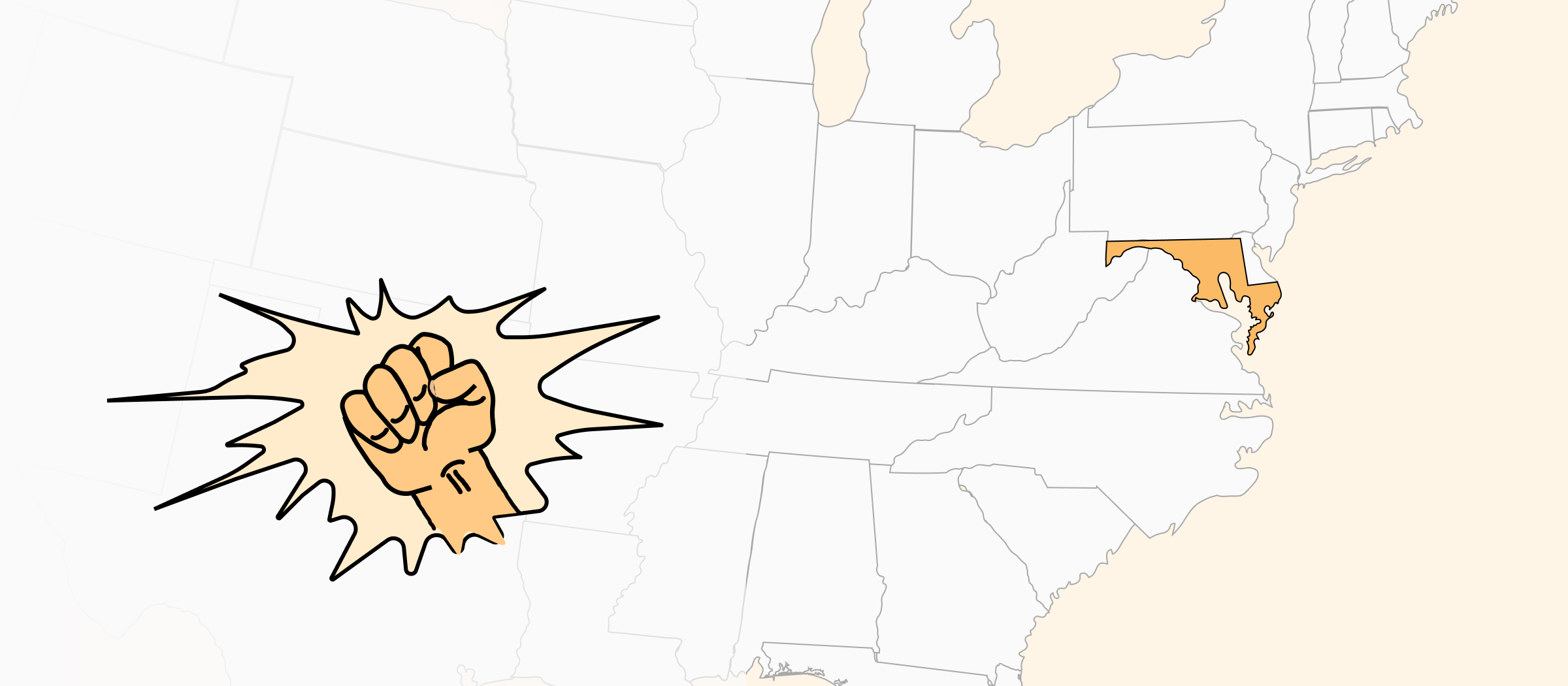| Tenant Protected Actions |
|
| Landlord Retaliatory Actions |
|
| Penalties for Retaliation |
|
When Is It Illegal for Landlords to Retaliate in Maryland?
It’s illegal for Maryland landlords to retaliate with raised rent, reduced services, or threatened eviction against tenants who have taken one of the following protected actions in the past six months:
- Reporting violations of lease, health, or safety to the government or the landlord.
- Participating in a suit against the landlord.
- Participating in a tenant organization.
The law allows an exception when the landlord can prove a non-retaliatory, good-faith reason for the alleged retaliatory action. For example, a landlord who raises rent proportionately in response to a large increase in property tax is not retaliating, even if a tenant has recently complained about maintenance.
What Can Tenants Do in Response in Maryland?
Maryland tenants can sue a retaliating landlord (or use retaliation as a defense, when the landlord’s retaliation is an attempted eviction or other court action). If the tenant wins, the court will grant damages of up to triple the monthly rent, plus court costs and attorney fees.
Sources
- 1 Md. Real Prop. Code § 8-208.1(a)(1) & (a)(2) (2022)
-
“(1) For any reason listed in paragraph (2) of this subsection, a landlord of any residential property may not: (i) Bring or threaten to bring an action for possession against a tenant; (ii) Arbitrarily increase the rent or decrease the services to which a tenant has been entitled; or (iii) Terminate a periodic tenancy.
“(2) A landlord may not take an action that is listed under paragraph (1) of this subsection for any of the following reasons: (i) Because the tenant or the tenant’s agent has provided written or actual notice of a good faith complaint about an alleged violation of the lease, violation of law, or condition on the leased premises that is a substantial threat to the health or safety of occupants to: 1. The landlord; or 2. Any public agency against the landlord; (ii) Because the tenant or the tenant’s agent has: 1. Filed a lawsuit against the landlord; or 2. Testified or participated in a lawsuit involving the landlord; or (iii) Because the tenant has participated in any tenants’ organization.”
Source Link - 2 Md. Real Prop. Code § 8-208.1(d) (2022)
-
“The relief provided under this section is conditioned on the tenant being current on the rent due and owing to the landlord at the time of the alleged retaliatory action, unless the tenant withholds rent in accordance with the lease, § 8-211 of this subtitle, or a comparable local ordinance.”
Source Link - 3 Md. Real Prop. Code § 8-208.1(c)(1) (2022)
-
“If in any proceeding the court finds in favor of the tenant because the landlord engaged in a retaliatory action, the court may enter judgment against the landlord for damages not to exceed the equivalent of 3 months’ rent, reasonable attorney fees, and court costs.”
Source Link

